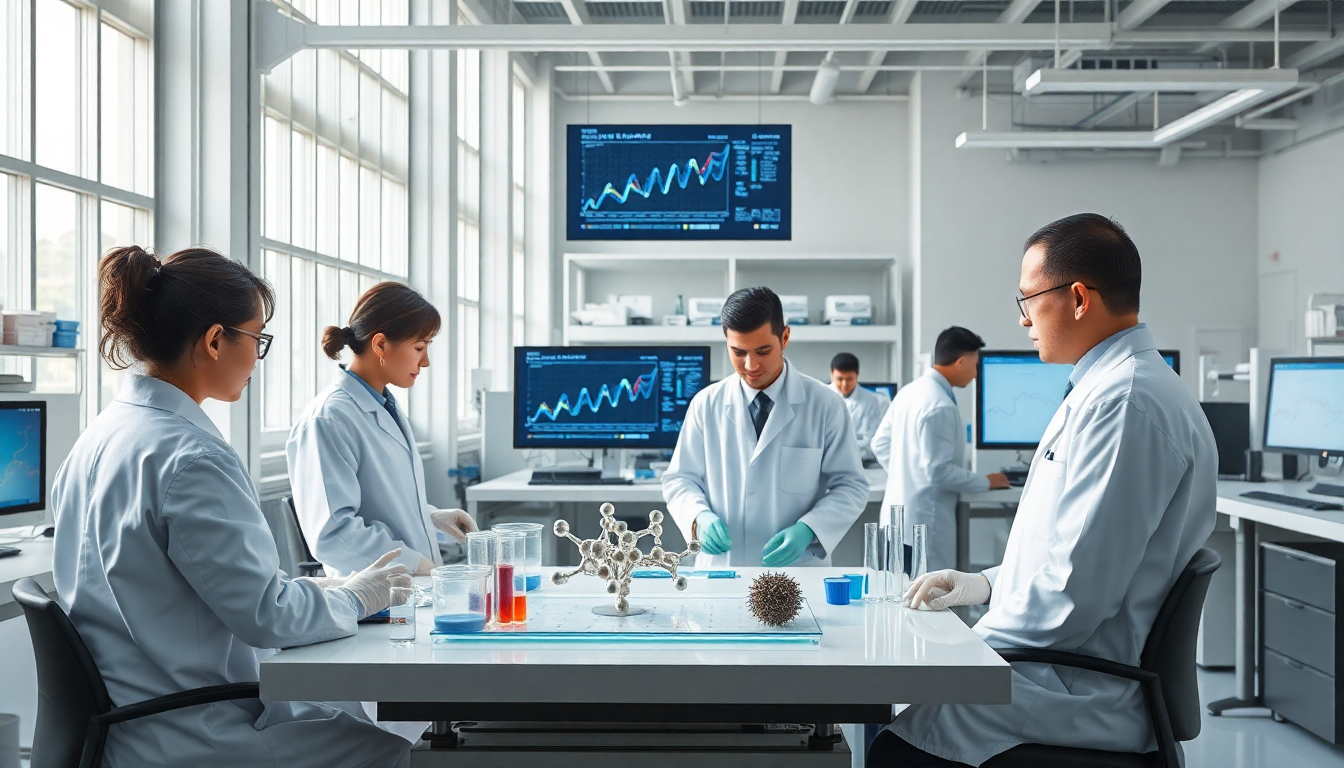Table of Contents
The integration of artificial intelligence (AI) in the biotechnology sector has sparked a transformative shift, especially in China. Companies like Shenzhen-based XTalPi and U.S. firm DoveTree are shining examples of how the world is beginning to recognize China’s growing biotech capabilities. But what does this mean for the future? As the industry evolves, it’s essential to understand how these advancements not only cut costs but also speed up the journey from initial discovery to clinical trials and, ultimately, commercialization.
The Expanding Landscape of AI in Drug Development
In recent years, innovative Chinese pharmaceutical companies have started to embrace AI technologies, aligning themselves with their global counterparts. Why is this important? The introduction of AI tools aims to streamline the discovery process, which has traditionally been riddled with high costs and long timelines. Take Genscript Biotech, for example. Based in Nanjing, this company is at the forefront of this movement. It’s utilizing a proprietary enzyme prediction database and advanced algorithms to manipulate gene sequences, helping to pinpoint and refine promising drug candidates. Analysts from Jefferies have noted that these in-house AI tools have the potential to dramatically enhance the accuracy of candidate selection based on protein sequences and therapeutic targets.
Looking ahead, projections from Coherent Solutions indicate that the market for AI-driven drug discovery is set for impressive growth, potentially skyrocketing from a valuation of $1.5 billion in 2023 to a staggering $13 billion by 2032. This rapid expansion presents significant investment opportunities, especially as spending on AI-based clinical research tools is expected to surpass $7 billion by 2030. Such financial forecasts paint a robust picture for AI applications in pharmaceuticals, further cementing technology’s role in modern drug development.
Capabilities of AI in Enhancing Research Efficiency
Thanks to AI technology, researchers can now analyze huge datasets, including genetic information and clinical trial results, with unmatched accuracy and speed. Companies like Nebius, an AI infrastructure and software provider from the Netherlands, are playing a crucial role in this trend by offering solutions that make processing complex biological data easier. In the competitive landscape of drug discovery, where every second counts, this ability to handle vast amounts of information efficiently is game-changing.
As innovation continues, the application of AI in drug discovery not only speeds up development timelines but also increases the chances of uncovering novel therapeutics. The collaboration between biotechnology and artificial intelligence is creating a new paradigm, where AI’s capabilities could lead to breakthroughs in treating various diseases. For investors and stakeholders, keeping up with these advancements is vital for navigating the evolving biotech market.
Implications for the Future of the Biotech Industry
The convergence of AI and biotechnology isn’t just a passing trend; it’s fundamentally reshaping drug discovery. As Chinese firms increasingly adopt AI technologies, the implications extend far beyond national borders, positioning China as a significant player in the global biotech arena. This shift could foster a more collaborative environment among international biotech companies, driving innovation and expanding access to advanced treatments.
In summary, the rise of AI in the Chinese biotech sector brings both challenges and opportunities. Stakeholders must stay informed about these developments to capitalize on potential investment avenues while navigating the complexities of this fast-paced landscape. As the market evolves, the integration of AI will likely play a pivotal role in defining the future of drug discovery and development. Are you ready to explore what this means for the future of healthcare?


